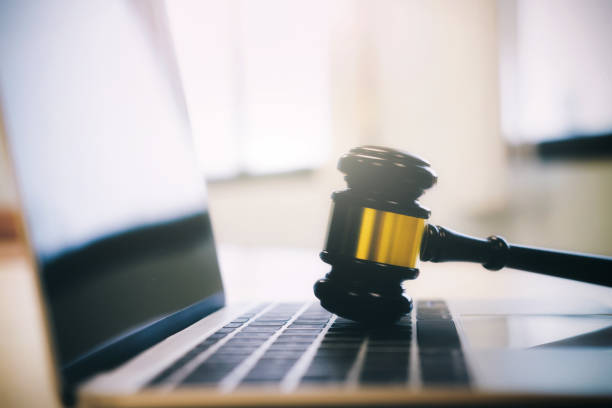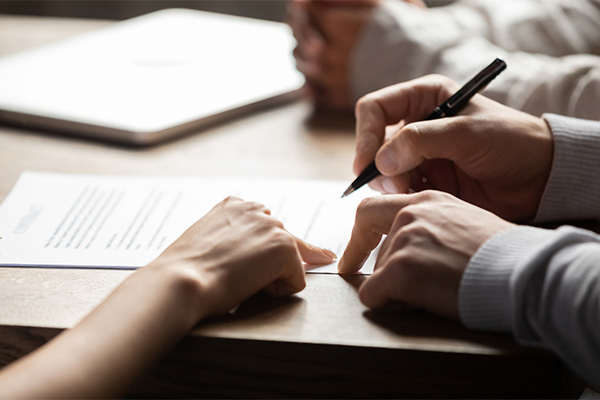Innovation drives progress, but without proper protection, groundbreaking ideas can be copied, stolen, or lost. This is where patent prosecutors step in—highly specialized professionals who serve as the bridge between inventors and the patent office, ensuring that valuable innovations receive the legal protection they deserve.
A patent prosecutor is a licensed patent attorney or agent who specializes in preparing, filing, and shepherding patent applications through the complex examination process. Unlike patent litigation attorneys who handle disputes in court, patent prosecutors work primarily with patent examiners at the United States Patent and Trademark Office (USPTO) to secure granted patents for their clients.
The role requires a unique blend of technical expertise, legal knowledge, and strategic thinking. Patent prosecutors must understand both the intricacies of their clients’ innovations and the ever-evolving landscape of patent law. Their work forms the foundation of intellectual property protection, making them essential partners for inventors, startups, and established companies looking to safeguard their competitive advantages.
Key Responsibilities: Drafting, Filing, and Prosecution

Patent Application Preparation
The journey begins with transforming an invention into a comprehensive patent application. Patent prosecutors work closely with inventors to understand every aspect of their innovation, from its technical specifications to its potential commercial applications. This collaboration results in detailed patent applications that include precise technical drawings, comprehensive descriptions, and carefully crafted claims that define the scope of protection sought.
The quality of this initial work cannot be overstated. A well-drafted application provides a strong foundation for prosecution, while poorly prepared applications often face numerous rejections and may ultimately fail to secure meaningful protection.
Strategic Filing Decisions
Patent prosecution attorneys must make critical decisions about where, when, and how to file patent applications. This includes determining the optimal filing strategy across multiple jurisdictions, deciding between provisional and non-provisional applications, and identifying opportunities for continuation or divisional applications that can expand the scope of protection.
These strategic considerations directly impact the value and enforceability of the resulting patents, making the prosecutor’s expertise invaluable for maximizing intellectual property portfolios.
Examination Response and Negotiation
Once filed, patent applications enter the examination phase, where patent examiners review them to determine their patentability. Patent prosecutors serve as advocates during this process, responding to office actions, addressing examiner concerns, and negotiating the scope of patent claims to secure the broadest possible protection, while overcoming legal obstacles.
The Patent Prosecution Process: A Step-by-Step Guide
Initial Consultation and Prior Art Search
The patent prosecution process typically begins with a thorough consultation between the patent prosecutor and inventor. During this phase, prosecutors conduct comprehensive prior art searches to identify existing patents and publications that might impact the patentability of the proposed invention.
This preliminary research helps shape the application strategy and identifies potential obstacles early in the process, saving time and resources while improving the chances of success.
Application Drafting and Filing
Following the initial consultation, patent prosecutors draft the patent application, ensuring compliance with all USPTO requirements. The application must include a detailed specification that fully describes the invention, enabling others skilled in the art to make and use it, along with claims that precisely define the invention’s boundaries.
Filing patent applications requires careful attention to deadlines, fees, and procedural requirements. Patent prosecutors manage these details while ensuring that applications meet all formal and substantive requirements for examination.
Examination and Office Action Response
After filing, patent applications are assigned to patent examiners who review them for compliance with patentability requirements. Examiners often issue office actions raising objections or rejections based on prior art, obviousness, or other legal grounds.
Patent prosecutors analyze these office actions and prepare detailed responses addressing each concern raised by the examiner. This back-and-forth process continues until the application is either allowed or finally rejected, with prosecutors advocating for their clients’ interests throughout.
Patent Allowance and Issuance
When an application overcomes all rejections and objections, the patent examiner issues a notice of allowance. Patent prosecutors then ensure that all final requirements are met and fees are paid, leading to the issuance of a granted patent that provides legal protection for the invention.
Strategic Considerations: Maximizing Patent Value

Portfolio Development
Experienced patent prosecutors think beyond individual applications, helping clients develop comprehensive patent portfolios that provide layered protection for their innovations. This might involve filing multiple related applications, pursuing continuation applications to capture improvements or alternative embodiments, and coordinating filing strategies across different product lines or technologies.
Commercial Alignment
The most valuable patents align closely with commercial objectives. Patent prosecutors work with clients to understand their business goals, competitive landscape, and technology roadmap, ensuring that patent applications support long-term strategic objectives rather than simply protecting individual inventions in isolation.
Freedom to Operate Analysis
Patent prosecutors also help clients navigate the complex landscape of existing patents, conducting freedom to operate analyses that identify potential infringement risks and developing strategies to avoid or address these concerns through design-around solutions or licensing agreements.
The Importance of Expertise: Qualifications and Skills
Technical Background
Patent prosecutors typically hold advanced degrees in technical fields such as engineering, chemistry, biology, or computer science. This technical expertise enables them to understand complex innovations and communicate effectively with both inventors and patent examiners.
The USPTO requires patent prosecutors to demonstrate technical competency through educational credentials or professional experience before granting authorization to practice patent law.
Legal Training and Registration
In addition to technical qualifications, patent attorneys must complete law school and pass both the patent bar examination and a state bar examination. Patent agents, while not required to attend law school, must pass the patent bar examination and demonstrate technical competency.
This rigorous qualification process ensures that patent prosecutors possess the necessary expertise to navigate the complex intersection of technology and law that defines patent practice.
Continuing Education and Specialization
The patent law landscape evolves constantly, with new court decisions, USPTO rule changes, and technological developments affecting practice requirements. Successful patent prosecutors commit to ongoing education and often develop specialized expertise in particular technical areas or types of patent prosecution.
Challenges and Pitfalls: Navigating Complexities
Evolving Legal Standards
Patent law continues to evolve through court decisions and USPTO policy changes, creating ongoing challenges for patent prosecutors. Recent changes in patentable subject matter standards, obviousness analysis, and claim interpretation have significantly impacted prosecution strategies.
Patent prosecutors must stay current with these developments and adapt their approaches accordingly, ensuring that applications meet current standards while anticipating future changes that might affect patent validity or enforceability.
Technical Complexity
Modern innovations often involve complex technologies that span multiple technical disciplines. Patent prosecutors must develop sufficient understanding of these technologies to draft effective applications and respond to examiner challenges, sometimes requiring collaboration with technical experts or specialized co-counsel.
Time and Resource Management
Patent prosecution involves managing multiple applications simultaneously, each with different deadlines, requirements, and strategic considerations. Effective patent prosecution attorneys develop systems and processes that ensure consistent quality while meeting all procedural deadlines and client expectations.
Building Strong Patent Foundations Through Expert Prosecution
Patent prosecution forms the cornerstone of effective intellectual property protection. The expertise and strategic thinking that patent prosecutors bring to this process can mean the difference between strong, enforceable patents and weak applications that provide little meaningful protection.
For inventors and companies serious about protecting their innovations, partnering with experienced patent prosecution attorneys represents an essential investment in their intellectual property future. The right prosecutor doesn’t just file patent applications—they build comprehensive protection strategies that support long-term business success and competitive advantage.
Whether you’re a startup with breakthrough technology or an established company expanding your patent portfolio, understanding the patent prosecutor’s role helps you make informed decisions about protecting your most valuable innovations.
Looking to Protect Your Intellectual Property?
Please contact Arlen Olsen at Schmeiser, Olsen & Watts LLP at aolsen@iplawusa.com.
About the Author

Mr. Olsen, a former adjunct professor of intellectual property law, has over 30 years of experience in all aspects of intellectual property law. Mr. Olsen is a founding Partner of Schmeiser, Olsen & Watts LLP and a former United States Patent Examiner. Mr. Olsen has prosecuted numerous patents that have been litigated and received damages of over 60 million dollars. Additional activities include teaching seminars, appearing as a guest lecturer on intellectual property matters for corporations and educational institutions, and evaluating and consulting with clients regarding the scope, enforcement, and protection of intellectual property rights.



